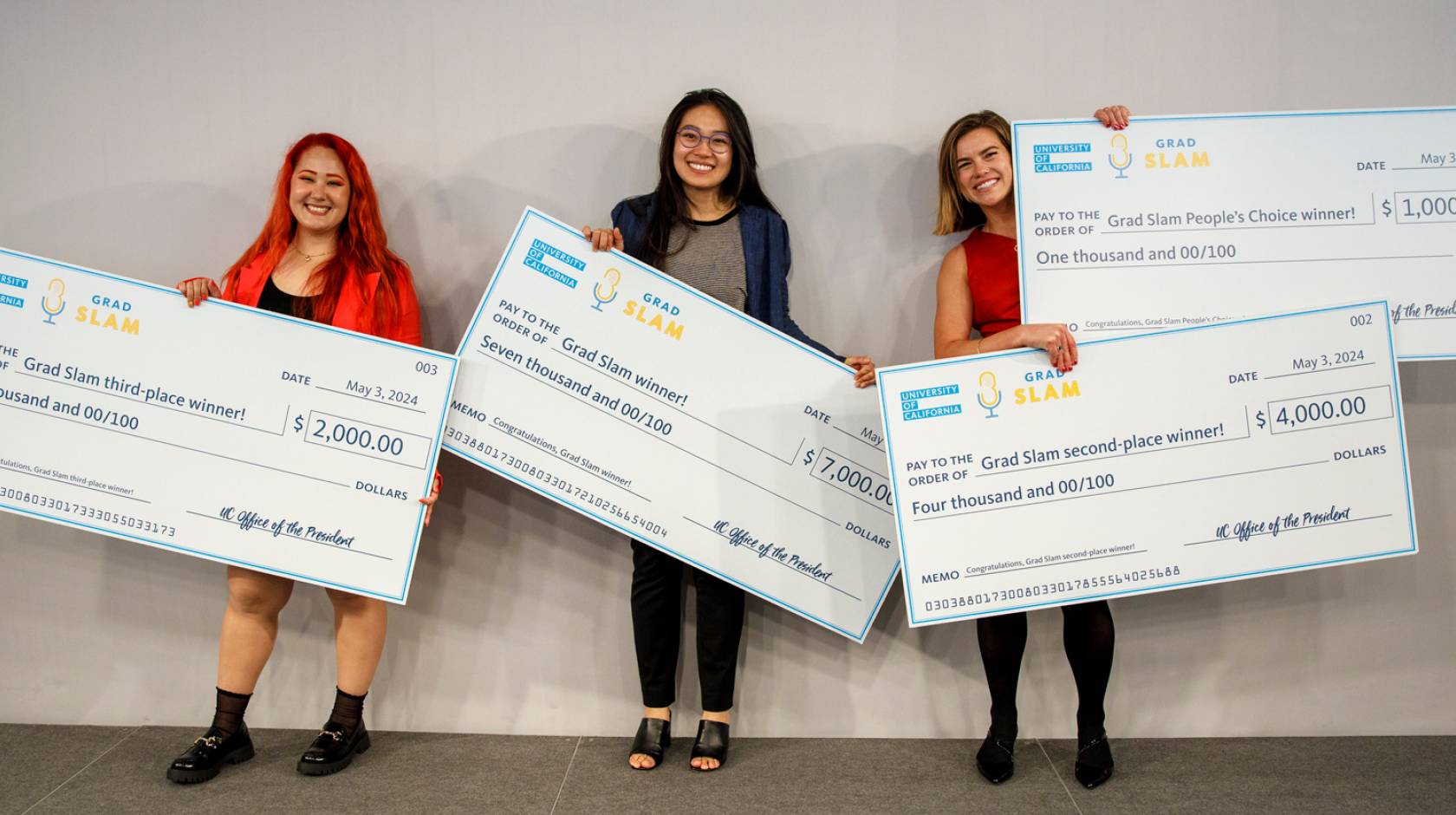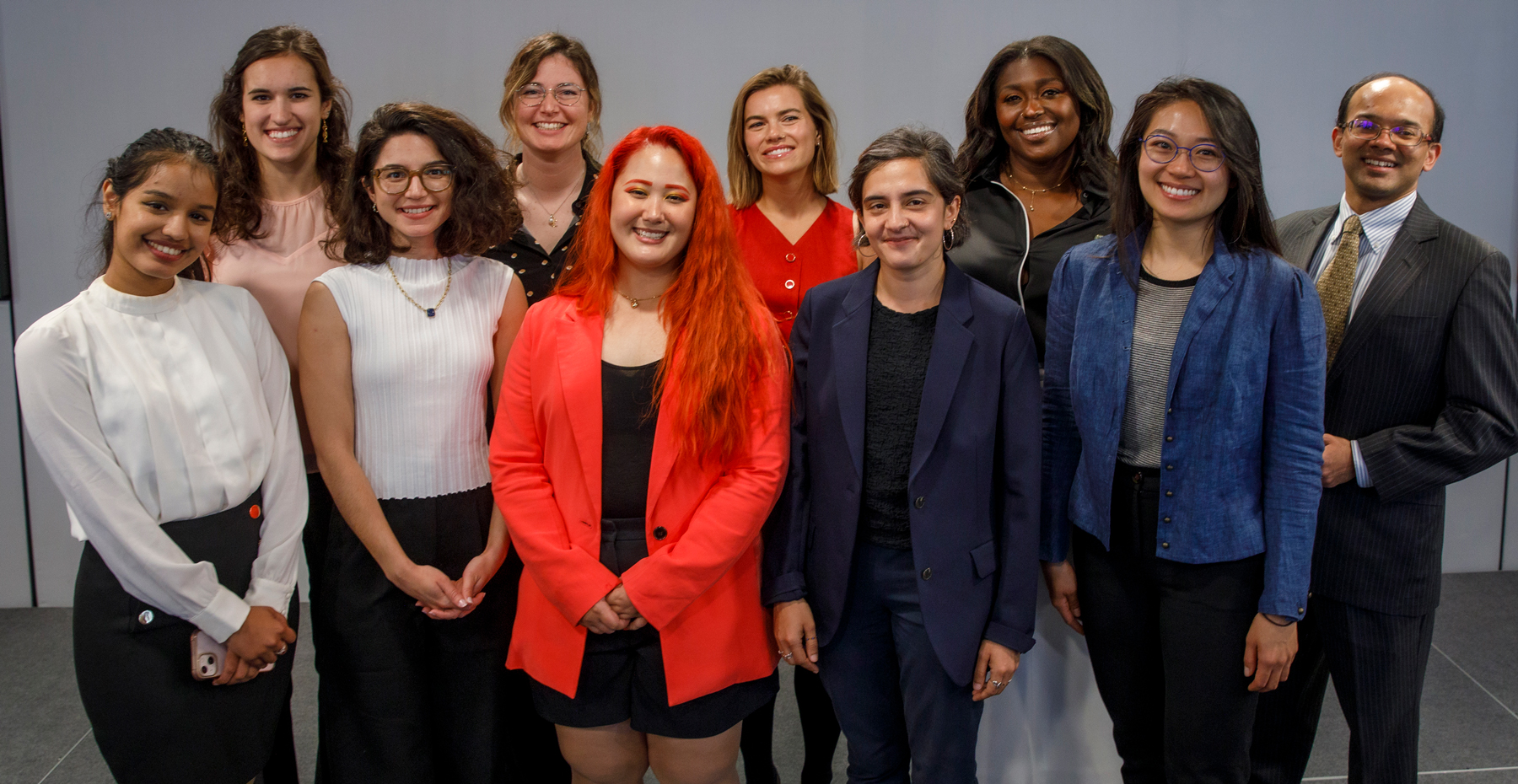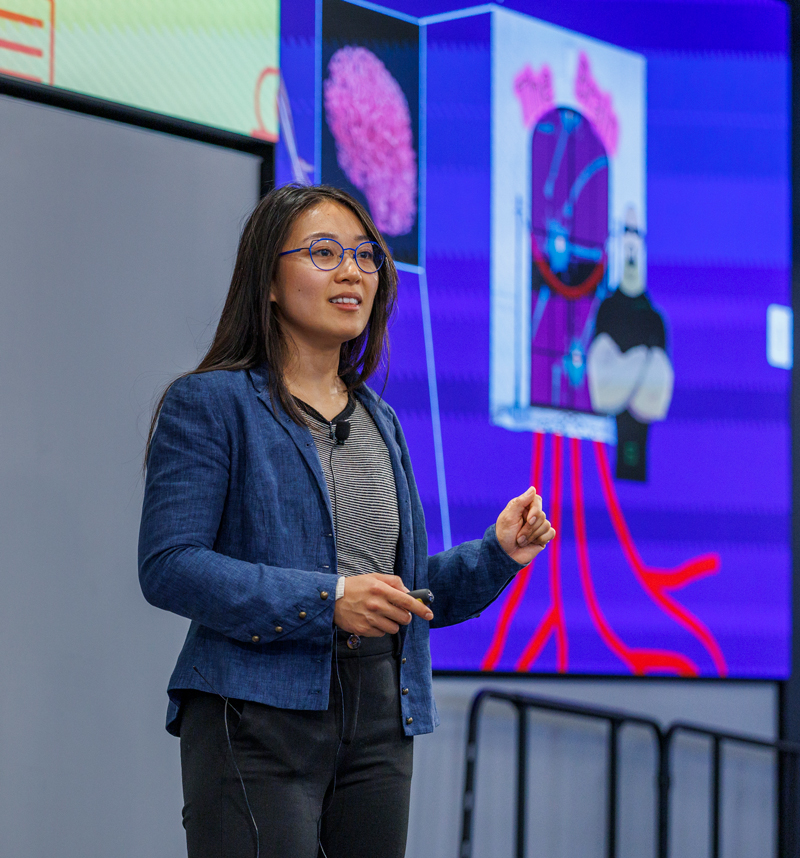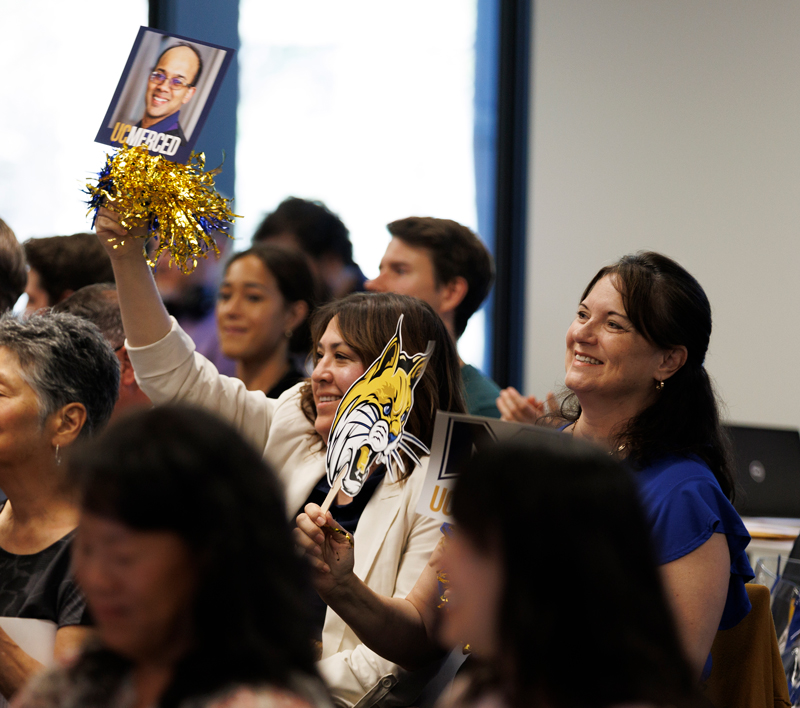Apollonia Morrill, UC Newsroom

Quick! In three minutes flat, without using scientific or medical jargon, explain the function of the blood-brain barrier and the role it might play in treating disease.
It might sound like a tall order, but Iris Garcia-Pak is up for the task. In fact, the UC San Diego Neurosciences M.D.-Ph.D. student just took the top prize in the much-anticipated UC Grad Slam contest for doing just that.
The ninth annual systemwide Grad Slam competition took place on Friday, May 3 at the LinkedIn headquarters in San Francisco. Ten contestants — one graduate student from each UC campus — were charged with the challenge of condensing years of nuanced research into clear, compelling talks of 180 seconds or less. Each participant was already a champion, having beat out contenders in their own campus competitions before coming together for the ultimate matchup.
A sticky portmanteau
To earn the title of Grad Slam Champion, $7,000 in prize money and the coveted Slammy trophy, Garcia-Pak offered a tantalizing and relatable peek into her neuroscience research on the blood-brain barrier.
Garcia-Pak compared the brain to an exclusive VIP club where the blood-brain barrier (BBB) is a bouncer keeping the riff-raff out (the BBBouncer, of course). The bouncer controls the ins and outs of the brain, letting in necessary nutrients and oxygen while keeping out harmful bacteria, for instance.
Garcia-Pak’s lab has found that the BBB may also control glutamate levels in the brain. This finding is significant because uncontrolled levels of glutamate are associated with epilepsy, anxiety and other conditions. Her research suggests that the BBB may play a role in preventing these conditions, pointing to the immense potential of targeting the blood brain barrier to treat brain diseases.
What was the secret to Garcia-Pak’s success on the stage? “I leaned into my personality and relied heavily on my non-STEM partner, Alex, for feedback. We came up with the blood-brain barrier as a bouncer analogy together. Then I just wanted to make it silly and fun by creating a portmanteau of BBB and bouncer. It happened to be sticky for listeners!”

The best of the best
Joining Garcia-Pak in the winner’s circle were Shannon Brady of UC Riverside and Kacie Ring of UC Santa Barbara. Brady took the third place prize for her compelling presentation on how self-talk might help children manage their emotions — a potential game changer for child development. Setting a Grad Slam precedent, Ring won both second place and the People’s Choice award for her summary of how deforestation can lead to “spillover” events where zoonotic viruses jump from animal to human populations.

Iris Garcia-Pak of UC San Diego presents her Grad Slam talk, "The Brain: An Exclusive VIP club."
The distinguished panel of judges included Diana Chu, a professor of biology at San Francisco State University; author and SF State Cal-Bridge Scholar Daphne Jomo; UC Regent Nancy Lee; UC Academic Senate Chair James A. Steintrager; and Stephanie Weisman, founder and artistic/executive director of The Marsh. Audience members at the event and online also got to weigh in, casting votes for the People’s Choice award.
Communicating the value of research
All 10 Grad Slam presenters spent months preparing their pitches and working their way through qualifying rounds at their respective campuses. Why take on the added work? Beyond the allure of capturing the shimmering Slammy and a hefty check, contestants in the campus and systemwide competitions build communication skills to make it easier to land jobs, get research funding and demystify science.

Fans in the audience cheer for UC Merced Grad Slam contestant Ambarish Varadan.
Garcia-Pak describes the process: “When preparing for the UC San Diego Grad Slam, we all workshopped our talks together. I felt a great sense of community across such different disciplines, and we all improved immensely from the submission to the final. It was also a great way to hear about what other grad students do in a very digestible way.”
At UC Santa Barbara, Kacie Ring had a similar experience. “As I went through the process, I realized I was building skills beyond the scope of a fun contest. I was totally put outside my comfort zone, and now I am so excited to talk about science to anyone. The most unexpected outcome was gaining a group of new colleagues and friends. My mind, community and heart have been immeasurably expanded from these connections, and I am so thankful for this competition for facilitating that.”
Ultimately, Grad Slam is all about the groundbreaking research happening across the UC system, giving the public a preview of the fruits of that work and why it matters.
“You must do it!” Ring advises other graduate students considering participating in Grad Slam. “At the very least, you'll have a developed three-minute pitch about your research, which may help connect the dots about it.”

